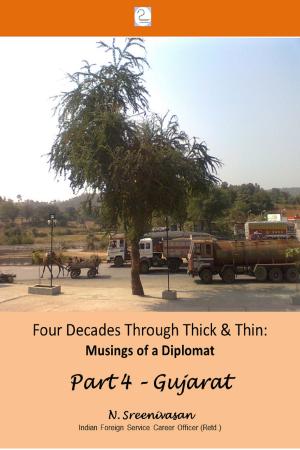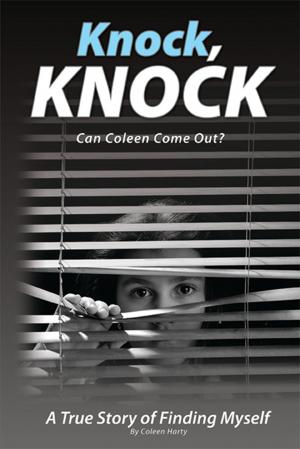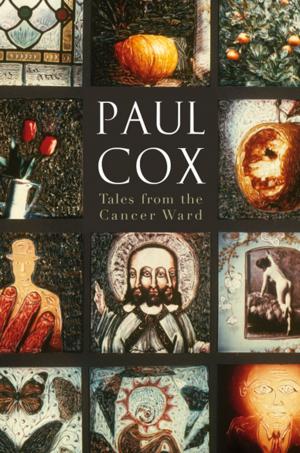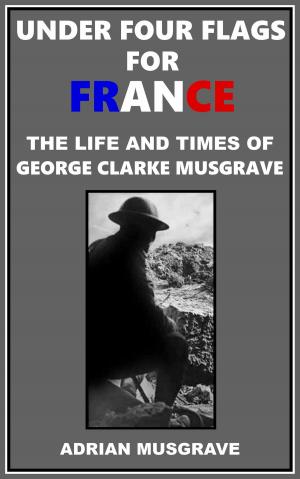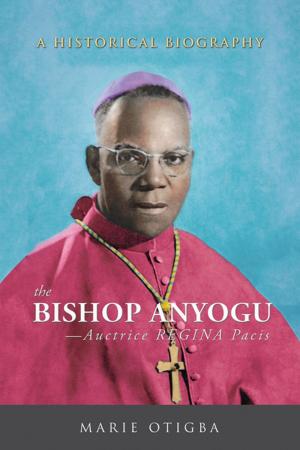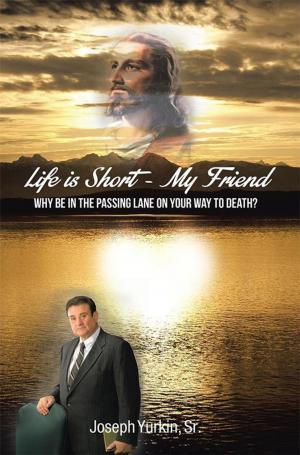| Author: | Opal Earp Pounds | ISBN: | 9781370464593 |
| Publisher: | Opal Earp Pounds | Publication: | August 4, 2017 |
| Imprint: | Smashwords Edition | Language: | English |
| Author: | Opal Earp Pounds |
| ISBN: | 9781370464593 |
| Publisher: | Opal Earp Pounds |
| Publication: | August 4, 2017 |
| Imprint: | Smashwords Edition |
| Language: | English |
The title of this book is a quotation from Psalms 90:9-10, and the Biblical reference is a key to the Christian concerns that characterize the author's life from her conversion in 1952 at the age of 32 to her death in 2009 at the age of 89. Born in 1920, Opal Earp was reared on a farm northwest of Stroud, Oklahoma where her grandparents had homesteaded. In 1938 she graduated from Chandler High School and the next year she married Archie Pounds of Chandler. They had three children born between 1941 and 1946. The account of her life after 1952 is controlled by her desire to be a Christian mother, and her description of family events after that year is strongly colored by this desire. Thus the narrative is not only an account of the life of a farm girl born in Lincoln County, Oklahoma, it is also a conversion narrative in the tradition of Jonathan Edwards. Fifty years after Edwards' death, large numbers of people were converted in the Second Great Awakening of 1800 and the great revival at Cane Ridge, Kentucky that quickly followed and which became the pioneering event in the history of frontier camp meetings in America. Opal knew very little of these earlier events, but their shadow is felt in the tale that she tells.
The title of this book is a quotation from Psalms 90:9-10, and the Biblical reference is a key to the Christian concerns that characterize the author's life from her conversion in 1952 at the age of 32 to her death in 2009 at the age of 89. Born in 1920, Opal Earp was reared on a farm northwest of Stroud, Oklahoma where her grandparents had homesteaded. In 1938 she graduated from Chandler High School and the next year she married Archie Pounds of Chandler. They had three children born between 1941 and 1946. The account of her life after 1952 is controlled by her desire to be a Christian mother, and her description of family events after that year is strongly colored by this desire. Thus the narrative is not only an account of the life of a farm girl born in Lincoln County, Oklahoma, it is also a conversion narrative in the tradition of Jonathan Edwards. Fifty years after Edwards' death, large numbers of people were converted in the Second Great Awakening of 1800 and the great revival at Cane Ridge, Kentucky that quickly followed and which became the pioneering event in the history of frontier camp meetings in America. Opal knew very little of these earlier events, but their shadow is felt in the tale that she tells.


